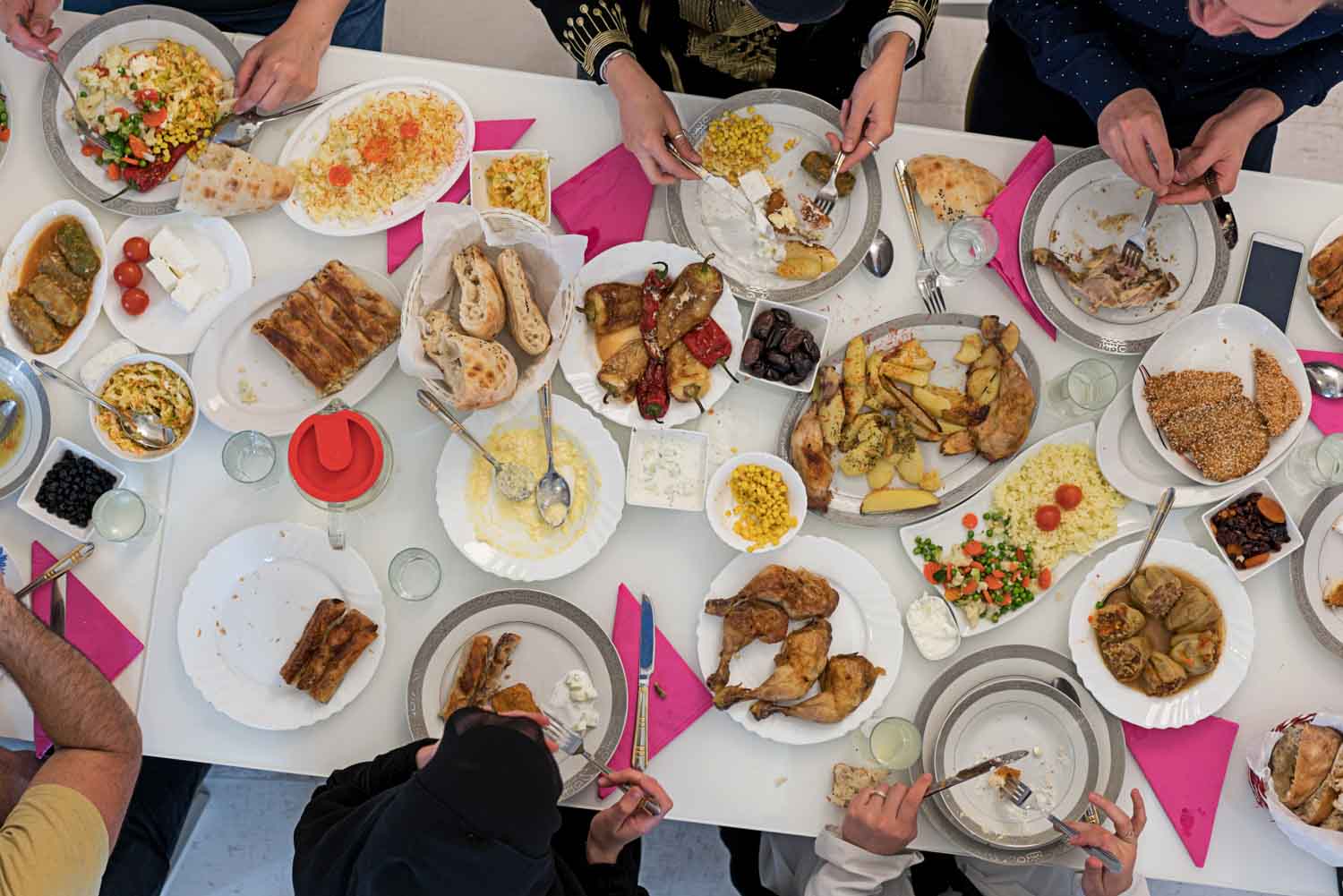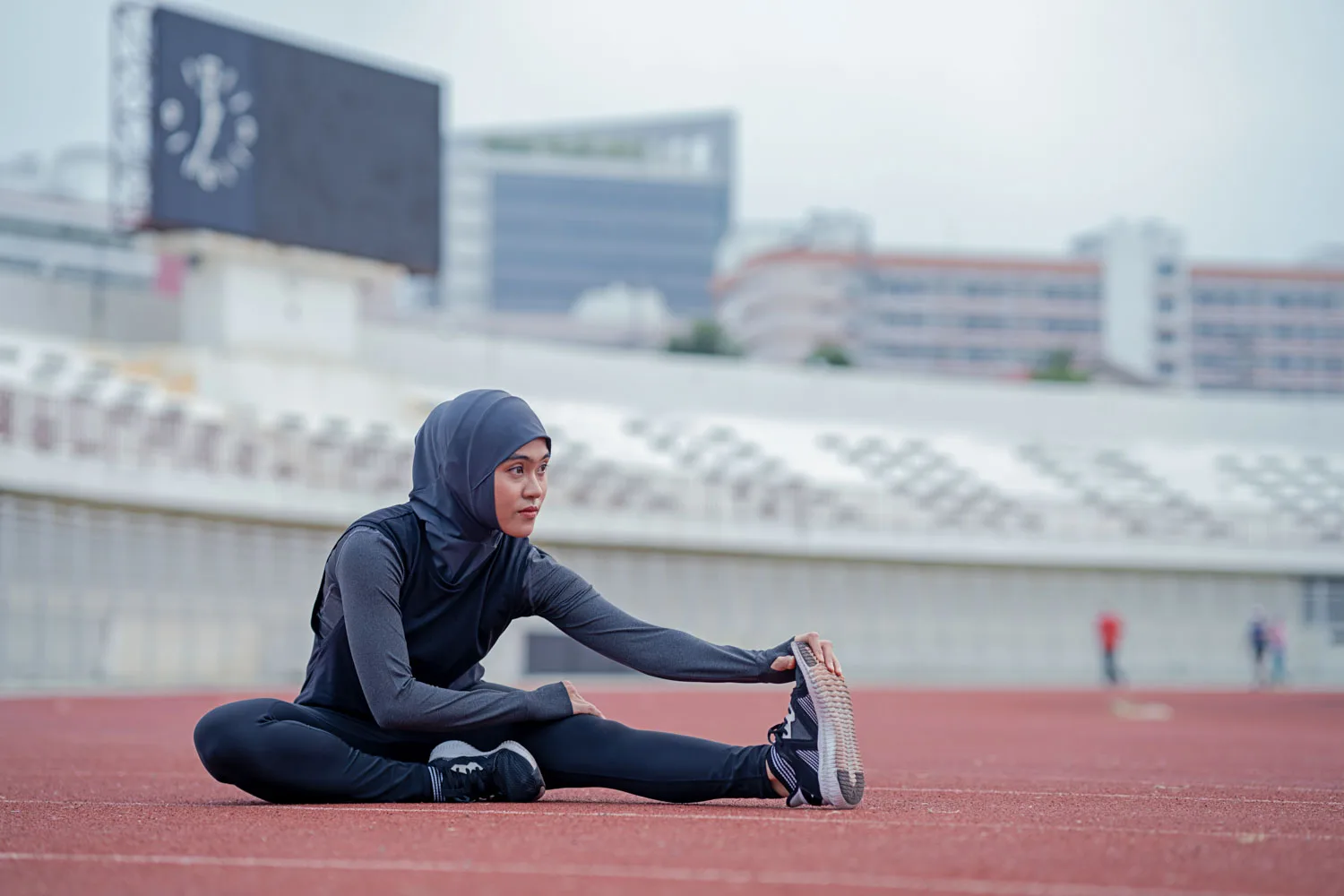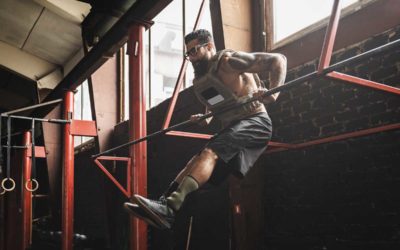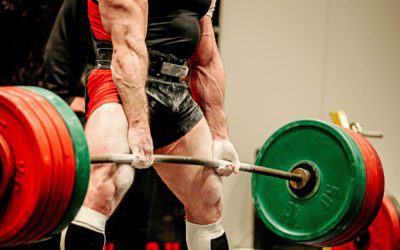Working Out During Ramadan: Maintaining & Making Gains
TOPIC: Nutrition | Sports Performance
It’s falsely believed by many Muslim athletes that Ramadan = losing progress (gains!). This isn’t the case if you train, fuel, hydrate, and sleep appropriately. Of course that’s easier said than done, but following a few of these strategies can make all the difference in your training during Ramadan.

Written By
mohammad nourani
Mohammad “Coach Mo” Nourani is the assistant track coach at Cal Poly specializing in sprints, jumps, and hurdles. A former NCAA athlete himself, Mohammad has experience working with youth, collegiate, and professional athletes from a variety of backgrounds.
Insta
What Is Ramadan?
Ramadan is a holy month in Islam: a time of remembrance when the Quran was first revealed. During this month, most Muslims observe Ramadan by fasting from sunrise to sunset.
This fast not only consists of abstaining from food and water (yes, both!) for 12-18 hours, but also abstaining from worldly pleasures to gain self-control and a closer relationship with God.
Understanding the Hijri Calendar
Ramadan doesn’t fall on the same month every year, making it easy for non-Muslims to miss. Most of the world follows the Gregorian calendar, which is based on the Earth’s rotation around the Sun. The Islamic (Hijri) calendar follows lunar cycles, with every new moon signifying the start of a new month.
The average lunar cycle is 29.53 days, meaning that months in the Hijri calendar alternate between 29 and 30 days. Because of this, the exact start/end dates of Ramadan are estimated beforehand, but usually not confirmed until the month is upon us.
Ramadan is the ninth calendar in the Hijri year. But since Hijri and Gregorian months don’t align, Ramadan starts about 10-15 days earlier than the prior year (on the Gregorian calendar). This also makes it possible for Ramadan to happen in every season!
Fasting: Suhoor and Iftar
As far as fasting goes, most Muslims end up eating/drinking twice a day: one meal before dawn (Suhoor) and one after sunset (Iftar).
Depending on where you live in the world, Suhoor is usually anytime from 3AM – 5AM, and Iftar from 7PM – 9PM. The daily fast commences just before the morning Fajr prayer, and ends right after the evening Maghrib prayer.

Timing Is Key: Ramadan Workout Strategies
There are a few strategies that make training a bit more manageable during Ramadan. And there are pros and cons to each.
There isn’t one that’s 100% better than the rest. What you choose to do depends on your preferences, situation with your sport and team, and schedule.
Option 1: Train After Iftar
Advantages
With this approach, you’re able to train and re-fuel simultaneously, just as you normally would. You might even be able to squeeze in a small pre-workout, and then proceed with training followed by a full meal.
Disadvantages
Training will be very late in the day, and likely after dark. Facilities might be closed/unavailable during this time. Also, if you want to work out with your coach/team/training partners during this time, it’s probably difficult to convince them to change their normal routine.
Option 2: Train Just Before Iftar
Advantages
As soon as the workout is complete, you’re able to refuel and rehydrate fully. This is when I personally prefer to do workouts during Ramadan.
Disadvantages
Getting through an entire workout while in a fasted state is pretty difficult. Also, like Option 1, it’s still pretty late in the day.
Option 3: Train Just Before Suhoor
This option requires waking up at least an hour prior to Suhoor mealtime, working out, and then eating and carrying on with the rest of the fasted day.
Advantages
Like Option 2, you’re able to fuel/refuel as much as needed mid-workout and post-workout.
Disadvantages
This is a pretty mentally taxing choice if you don’t thrive well off of little sleep (but plenty of people succeed in training with this method).
An additional hurdle with this option is finding the motivation to exercise while sleep-deprived and while it’s still dark outside.
Fueling & Hydrating: The Same, But Different
The key to planning for the nutritional component of Ramadan for athletes is to understand what you will be missing, and fill in those holes.
From a calorie perspective, most individuals do not change their normal total intake during Ramadan, because realistically, it is only one meal (lunch) that you’re skipping. And let’s be honest: most of us more than make up for that one missed meal by gorging ourselves during Suhoor and Iftar.
As an athlete, your needs are different from sedentary individuals. You need to pay closer attention to your carb, protein, and fat intake (based on your weight, training, sport/event, etc.).
This doesn’t change during Ramadan. But when you’re only eating two meals each day, you need to pay extra close attention to your macros during each meal. This is what’s going to get you through the fasted day ahead and aid your body in recovery.
A common misconception is that you can eat whatever you want during Ramadan because you lost so many calories fasting throughout the day. But we all know that not every food is going to be best for your body to recover and prepare for future workouts.
It’s tempting to just eat and eat and eat as much as possible during Iftar, so planning out your plate’s distribution of macronutrients before you begin eating is crucial.
A slight amount of weight loss (or weight gain due to overeating) during Ramadan is normal, particularly in the first couple of weeks. The overarching goal is to start and end at a similar weight to pre-Ramadan.
Remember, you’re only changing the timing of nutrition, not necessarily the amount.
Getting Enough Fluids
The trickier part is hydration. If you decide to train in a fasted state, you’re probably going to be extremely thirsty come Iftar.
The temptation is to chug as much fluid as possible, which feels great initially… until you realize all the room in your stomach has been taken up, and you aren’t hungry enough to eat properly.
My advice during Iftar is to rehydrate as much as possible, but do so slowly, and in conjunction with eating food.
Suhoor is an excellent time to hydrate as well, but again, you don’t want to overdo it and not get enough food to make it through the day. As with many things, balance is key.

How Hard Should You Train?
It’s hard to push the envelope while training in a fasted state, so the goal for most is to just maintain the levels of fitness they had built prior to Ramadan.
I recommend training at your current level, and not doing too much volume or intensity.
High-intensity efforts are absolutely still needed. It’s a common mistake to think that “maintenance mode” during Ramadan means only light or easy workouts. To keep the central nervous system sharp and the muscles firing, high-intensity efforts are required. The only difference is that the volume of intense efforts doesn’t need to be very high.
Mental Health Is Equally Important
With consistent training and recovery, it’s still very possible to make progress during this month, but don’t lose sight of your mental health.
Training and fueling aside, Muslim athletes face many other challenges during this time, including social stigma, mental state, and balancing schedules with training partners/teams.
In primarily Muslim countries, allowances are often made in everyday life at schools, businesses, etc., to accommodate citizens who are fasting for Ramadan. This isn’t the case in non-Muslim countries (like the United States).
That being said, it’s normal to feel unmotivated and lethargic during Ramadan, especially in the beginning. Don’t get discouraged if you’re unable to perform like you normally do – it comes back! I promise.
So remember to practice self-compassion (or your compassion for Muslim teammates) during Ramadan, and know that your performances/workouts don’t define you as an athlete or a person.
For a more in-depth guide on managing competitions, daily training, and sleep during Ramadan, check out this guide: A Practical Guide to Training During Ramadan.
Find Your Perfect Training Plan
Sometimes all you need to reach your destination on your fitness journey is an expert guide. Look no further, we've got you covered. Browse from thousands of programs for any goal and every type of athlete.
Try any programming subscription FREE for 7 days!
Related Articles
You May Also Like...
Nervous System Training 101: The Creation of Superhuman Strength and Athleticism
Most athletes train their muscles. The smart ones train their nervous system. If you want to move faster, lift heavier, and feel more explosive than ever, it’s time to go beyond brute strength. Nervous system training targets the real source of athletic power—your...
32 & Lifting: Reflections on My First Powerlifting Competition
Stepping onto the powerlifting platform at 32, just 13 months post-ACL surgery, Fred Ormerod chronicles his return to competitive sports after a 14-year hiatus. From shedding over 15kg to meet weight class requirements to confronting self-doubt and embracing the...
Intermittent Fasting for Shift-Working Athletes
Shift work can make fueling for performance feel like a constant battle. Between erratic schedules, disrupted sleep, and unpredictable training windows, sticking to a nutrition plan can be tough. Intermittent fasting (IF) offers a flexible approach that may already...
Nervous System Training 101: The Creation of Superhuman Strength and Athleticism
A whole book (or several) could be written about the idea of overloading the specific movements you are trying to improve in, but here is the key idea: The brain will generally wire movements towards efficiency rather than proficiency if allowed to do so.
32 & Lifting: Reflections on My First Powerlifting Competition
Stepping onto the powerlifting platform at 32, just 13 months post-ACL surgery, Fred Ormerod chronicles his return to competitive sports after a 14-year hiatus. From shedding over 15kg to meet weight class requirements to confronting self-doubt and embracing the...

Want more training content?
Subscribe
For Coaches
For Athletes
About
Support
Training Lab
Access the latest articles, reviews, and case studies from the top strength and conditioning minds in the TH Training Lab!
Made with love, sweat, protein isolate and hard work in Denver, CO
© 2024 TrainHeroic, Inc. All rights reserved.





